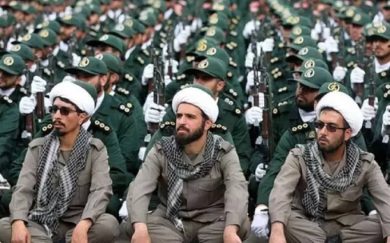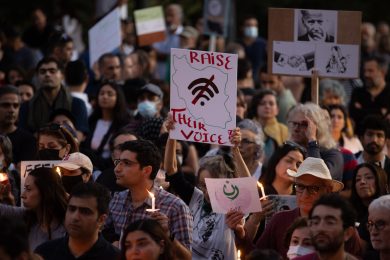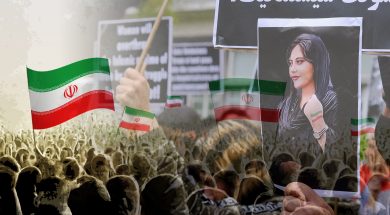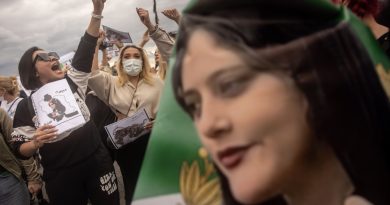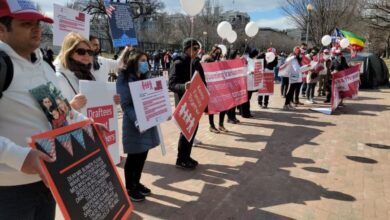The alliance between Hezbollah and the Islamic Revolutionary Guard Corps (IRGC) represents one of the most significant and dangerous terror connections in the modern world. This partnership, rooted in shared ideology, financial backing, and military cooperation, has enabled Hezbollah to become a dominant force in Lebanon and a critical proxy for Iran’s regional ambitions. At the same time, the IRGC has leveraged Hezbollah to extend its influence and execute its operations across the Middle East and beyond.
This analysis explores the origins, mechanisms, and global impact of the IRGC-Hezbollah connection, highlighting the destabilizing effects of their collaboration.
The Origins of the IRGC-Hezbollah Connection
The relationship between the IRGC and Hezbollah was forged in the early 1980s during the Lebanese Civil War. Following the Iranian Revolution, the newly established Islamic Republic sought to export its revolutionary ideology. Lebanon, with its significant Shia population and ongoing conflict, provided fertile ground for Iran’s ambitions.
• The Birth of Hezbollah:
In 1982, the IRGC sent operatives to Lebanon to train and organize Shia militants. This effort culminated in the formal establishment of Hezbollah in 1985, with a founding manifesto explicitly pledging allegiance to Iran’s Supreme Leader and the concept of Velayat-e Faqih (Guardianship of the Islamic Jurist).
• Shared Objectives:
Both the IRGC and Hezbollah share a commitment to opposing Western influence, confronting Israel, and promoting Shia Islamist ideology.
How the IRGC Supports Hezbollah
The IRGC’s Quds Force plays a central role in supporting Hezbollah, providing financial, military, and logistical assistance.
1. Financial Support
The IRGC channels substantial funds to Hezbollah, estimated at hundreds of millions of dollars annually. This funding supports:
• Military Operations: Purchasing weapons, training fighters, and maintaining Hezbollah’s military infrastructure.
• Social Services: Providing healthcare, education, and other services in Lebanon to bolster Hezbollah’s legitimacy.
• Global Activities: Financing terrorist operations and building networks abroad.
2. Military Training and Arms
The IRGC trains Hezbollah operatives in advanced warfare tactics, including:
• Asymmetric Warfare: Teaching guerrilla tactics and urban warfare techniques.
• Rocket and Missile Deployment: Supplying and training Hezbollah to operate thousands of rockets and precision-guided missiles.
• Drone Technology: Providing expertise and equipment for drone operations, which Hezbollah has used in surveillance and attacks.
3. Regional Coordination
Hezbollah operates as an extension of the IRGC’s regional strategy, playing key roles in conflicts such as:
• Syria: Supporting the Assad regime by deploying fighters and coordinating with IRGC forces.
• Yemen: Providing assistance to the Houthi rebels, including training and weapons.
• Iraq: Collaborating with IRGC-backed Shia militias to influence Iraq’s political and security landscape.
Hezbollah as the IRGC’s Global Proxy
Hezbollah serves as the IRGC’s primary tool for extending Iran’s reach beyond the Middle East.
1. Terrorist Activities
Hezbollah, with IRGC backing, has carried out numerous terrorist attacks, including:
• 1983 Beirut Bombings: Targeting U.S. Marines and French forces, killing hundreds.
• 1994 AMIA Bombing in Argentina: A deadly attack on a Jewish community center.
• Ongoing Plots: Hezbollah continues to target Western and Israeli interests globally.
2. Criminal Networks
Hezbollah engages in illicit activities, such as drug trafficking, money laundering, and smuggling, to fund its operations. These activities, often coordinated with IRGC assistance, destabilize regions and undermine global financial systems.
3. Political Influence
In Lebanon, Hezbollah wields significant political power, often acting as a state within a state. Its dominance undermines Lebanese sovereignty and aligns the country with Iran’s strategic goals.
Global Impact of the IRGC-Hezbollah Connection
The IRGC-Hezbollah alliance has far-reaching consequences for regional stability and global security:
1. Regional Destabilization
The IRGC and Hezbollah fuel conflicts in Syria, Iraq, Yemen, and beyond, exacerbating humanitarian crises and prolonging instability.
2. Threat to Israel
Hezbollah’s vast arsenal, supplied by the IRGC, poses an existential threat to Israel. The potential for large-scale conflict remains a constant source of tension.
3. Undermining Global Security
The IRGC-Hezbollah network’s involvement in terrorism and organized crime creates challenges for governments worldwide, complicating efforts to combat transnational threats.
Efforts to Counter the IRGC-Hezbollah Alliance
1. Sanctions
Countries like the United States and the European Union have imposed sanctions on both the IRGC and Hezbollah, targeting their financial networks and restricting their global operations.
2. Intelligence Sharing
International intelligence cooperation has been instrumental in uncovering and disrupting Hezbollah’s criminal and terrorist networks.
3. Designations
Many countries have designated Hezbollah as a terrorist organization, isolating it diplomatically and financially. Expanding these designations can further weaken the IRGC-Hezbollah connection.
Conclusion
The IRGC-Hezbollah alliance represents a cornerstone of Iran’s strategy to project power and influence across the Middle East and beyond. Their collaboration fuels terrorism, destabilizes regions, and undermines global security. Addressing this threat requires sustained international efforts, including sanctions, intelligence sharing, and support for regional stability. By countering the IRGC-Hezbollah connection, the global community can take a significant step toward reducing the threats posed by state-sponsored terrorism and regional conflict.
Join Our Newsletter!
Stay informed with the latest updates, news, and ways to take action in the fight for justice and global security. Sign up now to get updates delivered straight to your inbox!

